Roundup of Fierce Female Authors Who Talk About what it means to be truely fierce
What does it mean to be a fierce female? We asked various women authors to tell us what it means to truely be a fierce female. Author roundup featuring Karen Connelly, Susan Welch, Danielle Wong, Joan Dempsey, Jo Giese, and Beverly Engel.
Karen Connelly Author of The Change Room
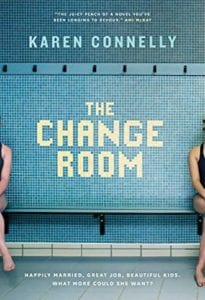
In my last novel, I wanted to smash up many of our conceptions of womanhood, motherhood and sexuality. I also wanted to embrace transgressive sex and sexualities without killing a single woman or child, which is usually the literary price exacted from female characters who transgress sexual norms, from Anna Karenina to Hausfrau to The Girl on the Train.
Thus my main characters, Eliza and Shar, though very different, are both fierce females. The first requirement of a fierce female, for me, is the kind of complexity and nuanced feeling that is increasingly eschewed in our world. Simplistic this-is-good/that-is-bad thinking dominates our culture at a time when our world has never been more complicated. To be fierce, in these times, means to be brave and forthright, yes. And it also means to be tender in and with a broken world. That is what my characters attempt to do, imperfectly.
Eliza is white and middle-class with roots in poverty, which she has worked hard to escape. She is a small business owner, an ex-chef, a mother, a loving wife who is nevertheless weary of her not-very-sexy marriage. She knows how privileged and blessed she is. Yet, perversely, she wants more. Not more money or a bigger house, but more life, more feeling, and much more sex. Into her busy, whirling world walks a tall, dark handsome stranger. With gorgeous breasts and a shaved pussy. They meet in the change room of the local pool and the sexual sparks fly. The novel is a celebratory exploration of their affair.
Unsurprisingly, no American publisher would publish The Change Room. The explicit sex between the women was repeatedly called out as ‘too much.’ That’s a sure-fire definition of a fierce female: she is considered “too much.”
Tall, dark, handsome Shar is mixed-race and middle-class, too, in some ways, but she is also an immigrant, a sex-worker, a citizen of the world by explicit choice. She is Middle Eastern, European, North American; she is an intellectual, a polyglot, a singular and single woman who is dedicated to her own freedom and (more shockingly) to her own pleasure and the pleasure of others.
She is also the survivor of a truly horrific act of sexual violence, but she is private about that part of her past, which she considers healed. She is about to step out of sex work into a related field, that of sex therapy and psychotherapy. Shar resembles a number of women I’ve known personally over the years. They rarely make it into literary novels because they are too fierce, too complex. It’s hard to believe they exist, these women, who’ve eschewed every traditional role of womanhood that we know. They are dazzling, and I’ve fallen in love and/or lust with several of them. The Change Room is my homage to their beauty and their courage.
Susan Welch Author of A THREAD SO FINE
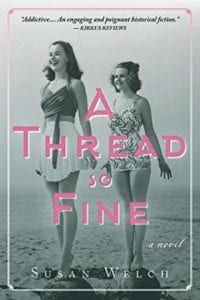
I’m forever grateful that through research, I discovered Frances Perkins, who became a pivotal secondary character in my novel, A Thread So Fine. I had been looking for a real life ‘fierce female of the 1940’s’ to serve as a role model to one of my protagonists who, under duress, leaves the safety of her family and Midwest home-town in 1948 for Cornell University.
When I somehow landed on Frances Perkins, I was suddenly like a happy squirrel chasing a runaway acorn down a very long hole. I had found not only my character’s role model, but my own.
When Perkins was 31 years old, she unexpectedly witnessed the Triangle Shirtwaist Factory fire in New York City which killed 146 garment workers, mostly immigrant women as young as 14. Outraged by the squalid sweatshop conditions that lead to the horrific fire, Frances committed her life to industrial reform and social justice work. Balancing marriage, motherhood and her husband’s mental health crises, she played a critical role in establishing what we now consider to be essential parts of our societal safety net–Social Security, unemployment insurance and child labor laws among many other reforms.
Her accomplishments as an activist and as a civil servant over nearly six decades opened my eyes to a type of fierce female that existed in midcentury America with many first and second wave feminists, although Frances outlasted them all.
She saw her own and other people’s outrage as an opportunity to bring about change – and she worked tirelessly, optimistically, fiercely to forge it. She did so by finding allies, defining common objectives and by using whatever means available to create consensus.
She was the first (and longest running) woman to serve in a presidential cabinet, as FDR’s Secretary of Labor. Her views were not always popular –in one case, the House Un-American Activities Committee tried to impeach her when she refused to deport Harry Bridges, the head of the west coast longshore union. The case was eventually dropped for lack of evidence. Her remarkable tenacity in bringing together politicians, the labor movement and manufacturers (mostly men who often disparaged her in ways we’d now consider ‘micro-aggressive’ or plain sexist) to introduce New Deal legislation– are far too buried in our national lore.
Frances Perkins was surely fierce. She operated in a man’s world with dogged determination to fix social injustices through consensus that has stood the test of time.
My question is, ‘why did it take me so long to find her?!’
Danielle Wong Author of Swearing Off Stars
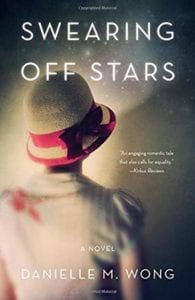
Now, more than ever, being a fierce female is an undeniable asset. Women have possessed and harnessed inner strength since the beginning of time, but there’s been a fundamental shift in the perception of female fierceness. As we continue to ditch archaic tropes of strong women as bossy and controlling, we embrace the reality that fierce females are empowered females.
Being fierce means voicing our opinions, even (and especially) if they challenge the status quo. It means being strong when things seem dismal, and asking for help when we need it.
Being fierce means knowing our own worth—standing up for ourselves and brazenly empowering others to do the same. It also means unapologetically pursuing our dreams and following our hearts. I explore these ideas in my novel, Swearing Off Stars. The story—set in the 1920s—follows Lia, an American student, and Scarlett, a British gender-equality activist. The young women meet at Oxford and eventually fall in love, initially choosing to keep their taboo relationship a secret. Amidst strict societal standards and political uprising, Lia and Scarlett face adversity in multiple forms. Ultimately, they realize that loving each other fiercely and fully—despite the world’s judgment—is the only way to live authentically.
I’m proud to be a fierce female, and I’m in brilliant company. It’s amazing to see so many women courageously speaking up and taking action. We want equal rights, not just for ourselves, but for every marginalized group. We are fiercely fighting for what’s right—locally, nationally, and even globally. Here’s to fierce females everywhere, and to the brighter future that we’re shaping together.
Joan Dempsey AUTHOR OF This is how it begins
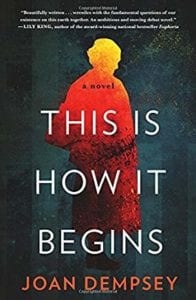
You want fierce? I’ll tell you who’s fierce: my 85 year-old character, Ludka. Seriously, I was trying to write a novel about her son, and Ludka kept muscling her way into every scene. I kept pushing her out. She kept coming back.
When I finally acquiesced and let her in, she took over the entire story, and thank goodness for that! This Is How It Begins is the happy result.
Like Ludka, I believe that being a fierce female is all about perseverance. Let nothing stop you from telling your stories, fulfilling your highest potential and living out your most fervent dreams.
Don’t wait for an invitation; invite yourself. If that doesn’t work, push your way past every obstacle. Don’t be afraid to bare your teeth and brandish your claws.
This is your one life. Live it with furious intensity.
Jo Giese Author of Never Sit If You Can Dance: Lessons from My MotheR
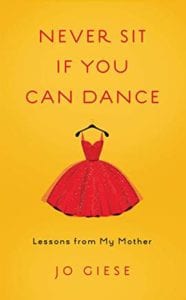
Never Sit If You Can Dance: Lessons from My Mother is a mother-daughter memoir, but a positive one. My mom was named Gladys but she didn’t like that name and since she was the baby in the family, she asked that we call her Babe, and it suited her. She was some Babe. She drank, danced, and stayed up very late. She favored colorful clothes, liked giving parties, adored her husband, and told her daughter, “Never sit if you can dance!”
She was fierce about making the best of it even in the worst of times–like when Hurricane Carla with 175 mph winds was projected to hit Houston back in the 60s, or when her husband got a job repairing the turbines at the Canyon Ferry Dam outside of Helena, Montana, and the only place the family could live was in a dirty, deserted shack, or when she was 95 and blossomed in a senior living community in Houston.
My book launched in time for Mothers Day this year and instantly became a Amazon best seller. Also, just this morning I learned that the San Francisco Book Review will give my book 5 stars tomorrow, and the reviewer said: This may be one of my favorite books of the year. I couldn’t have said it better.
Beverly Engel Author of I’m Saying No! Standing Up Against Sexual Assault, Sexual Harassment and Sexual Pressure
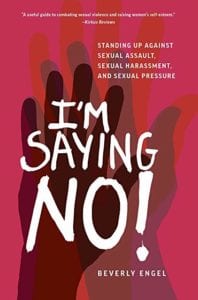
Fierce women stand up for themselves and they stand tall… especially when it comes to sexual assault, harassment, and sexual pressure.
Fierce women say “No!” loudly and clearly to anyone who tries to impose their will on them or tries to coerce them or force them to do anything they do not want to do. Fierce women have come to appreciate, love, and respect their precious body, and are determined to never allow anyone to violate it. Fierce women express their righteous rage at the mistreatment of women. Fierce women feel emboldened to reach out to help other women and girls to become more empowered.
Fierce women pass on what you have learned to the next generation. They become positive role models of strength, self-worth, and courage for every young girl they know.
Fierce women look for opportunities to pass along hope and support to the next wave of women who will be victimized. Fierce women teach their daughters that they have a right to stand up for themselves and say “No!” to unwanted touches and sexual approaches. They teach them to honor and respect their bodies and to never do anything just to go along with the crowd or try to keep a boyfriend. Fierce women teach their daughters to have compassion for their own suffering—to understand that they don’t need to pretend that something doesn’t bother them when it does and that by acknowledging that something is hurtful, embarrassing, or damaging, they will actually strengthen their resolve to not allow it to happen again. Fierce women teach their daughters to respect other girls instead of seeing them as rivals.
Fierce women are positive role models of a strong woman who doesn’t allow men to dominate, take advantage of, or abuse her. Fierce women are warriors who show the world that they a force to be reckoned with—a force that cannot be broken or beaten or disappeared.
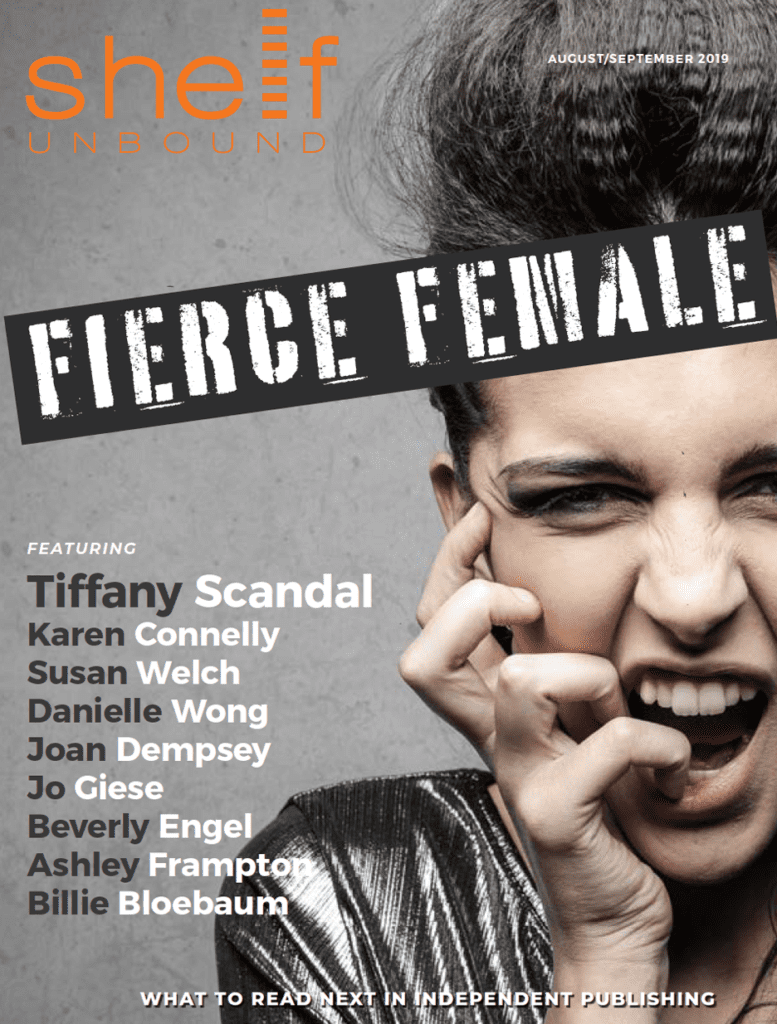
Continue Reading…
Article originally Published in the August/September 2019 Issue “Fierce Female”
